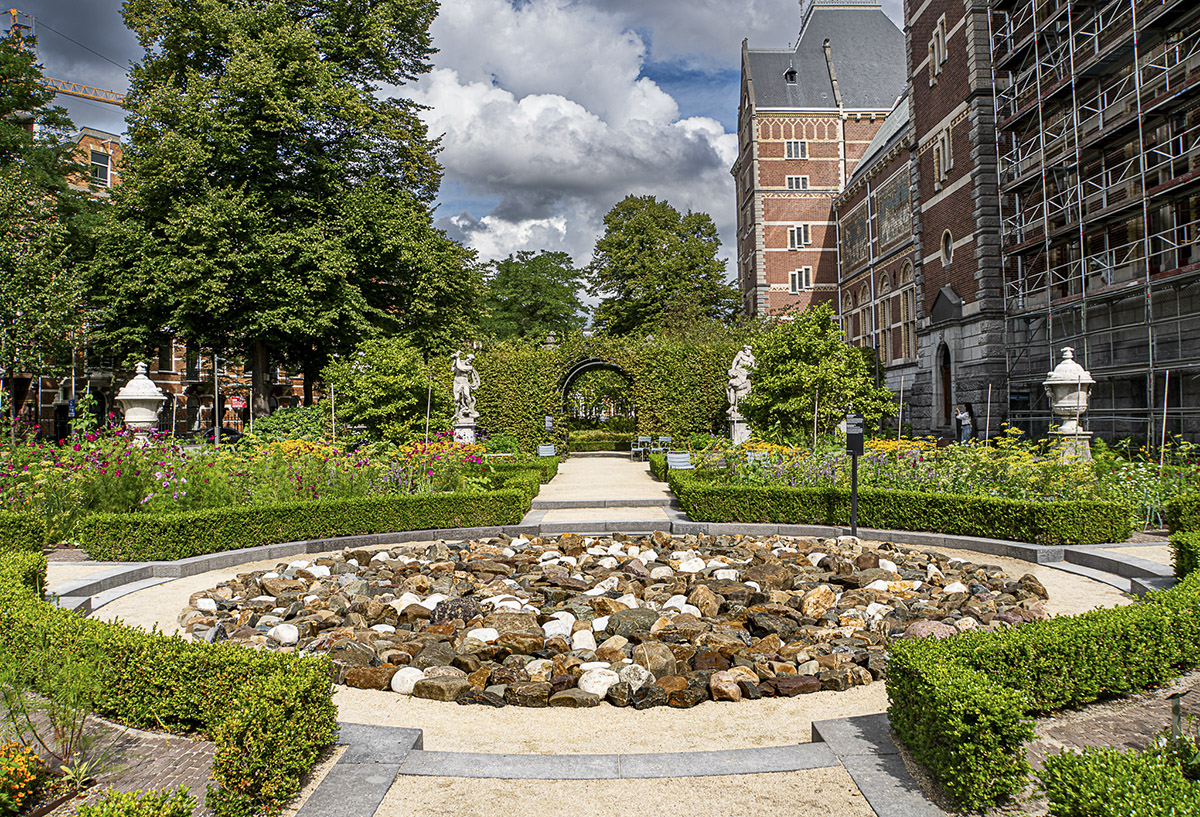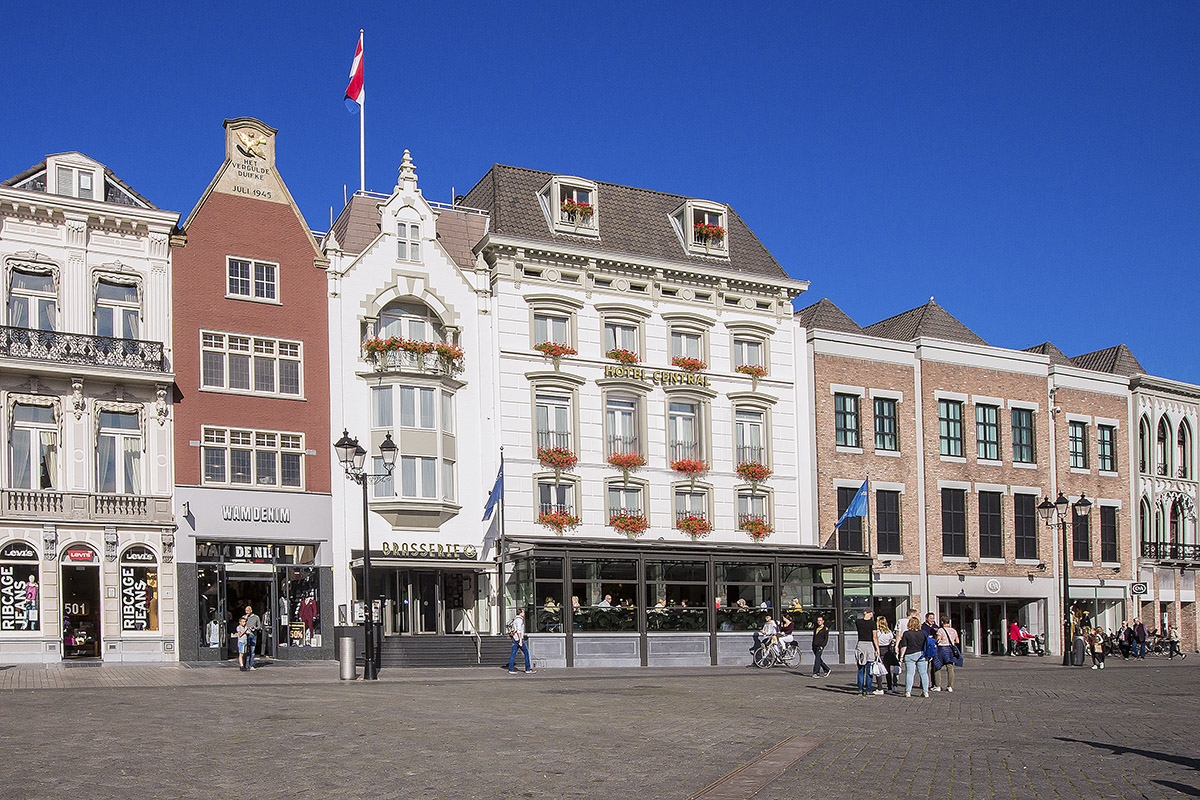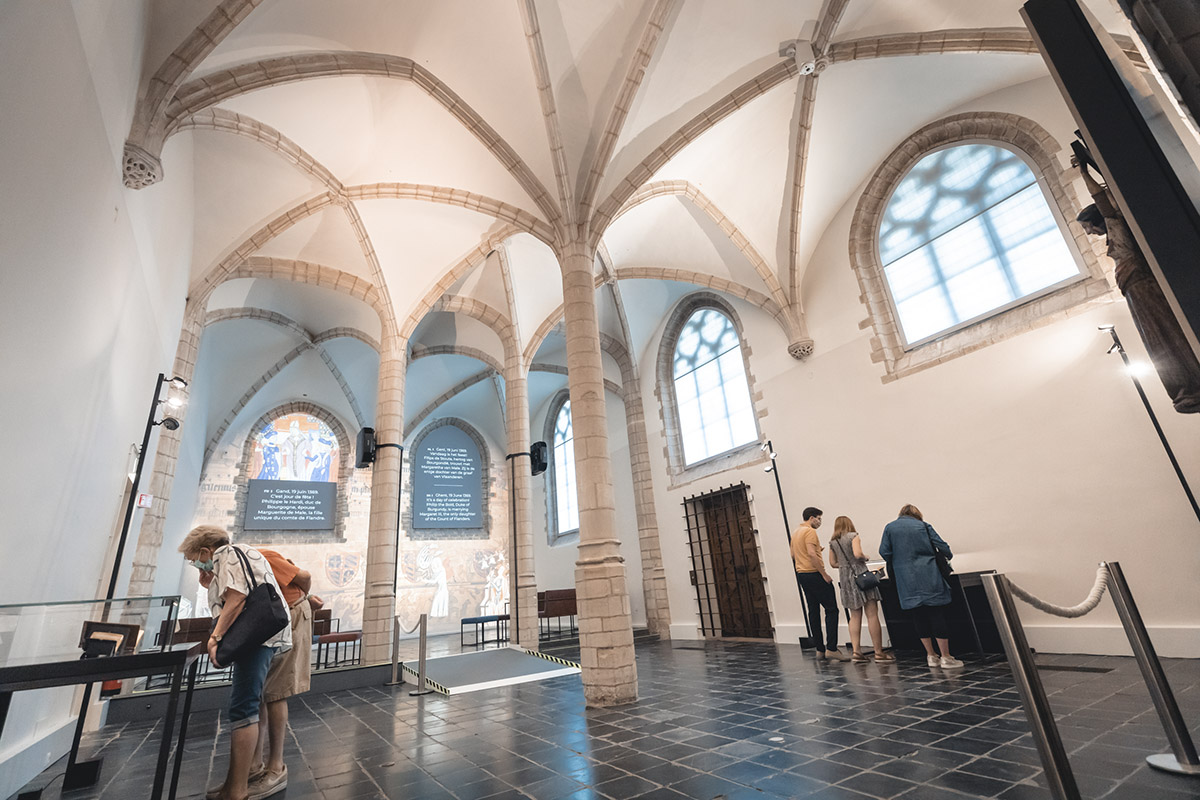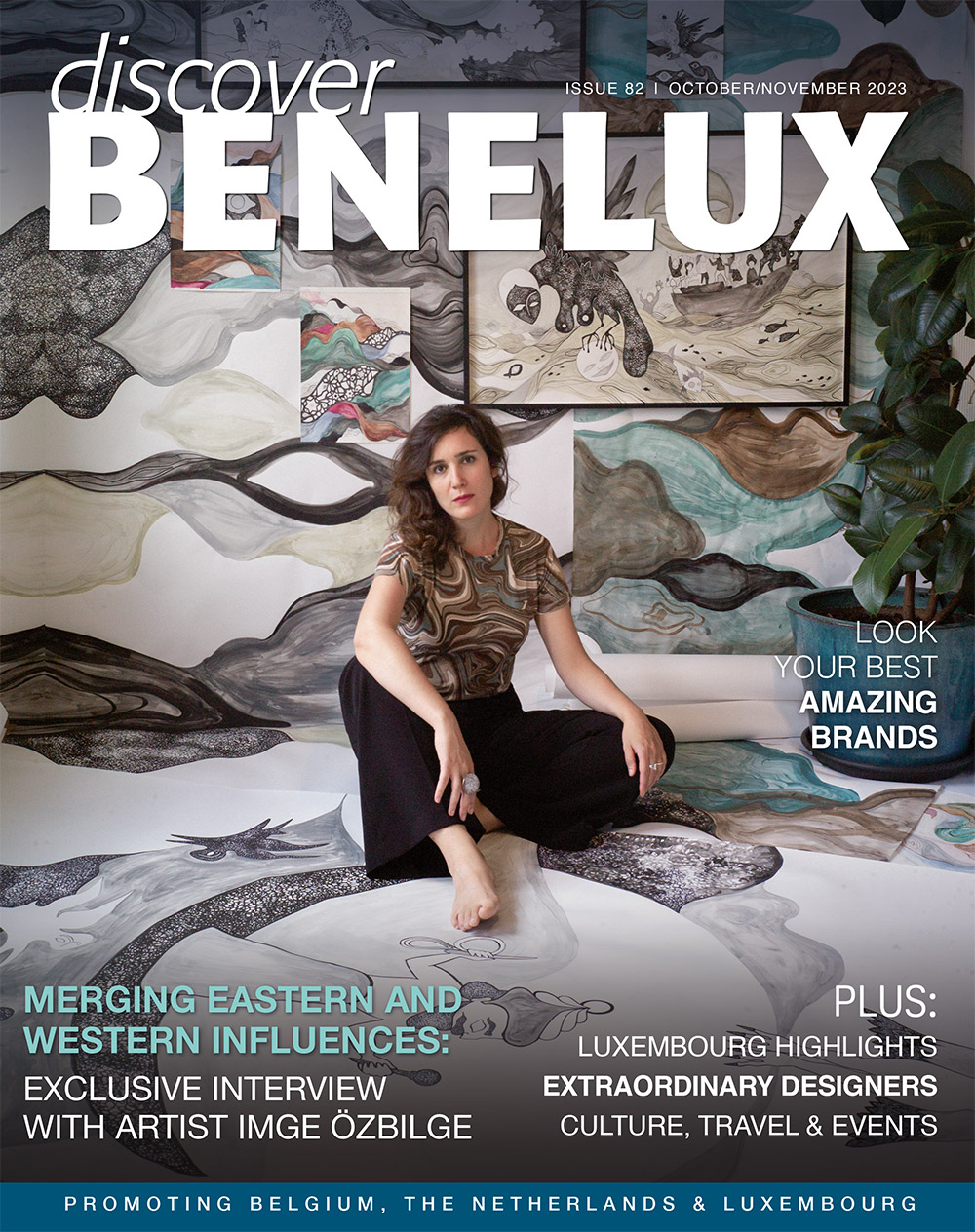Jaco Van Dormael: Defying the rules
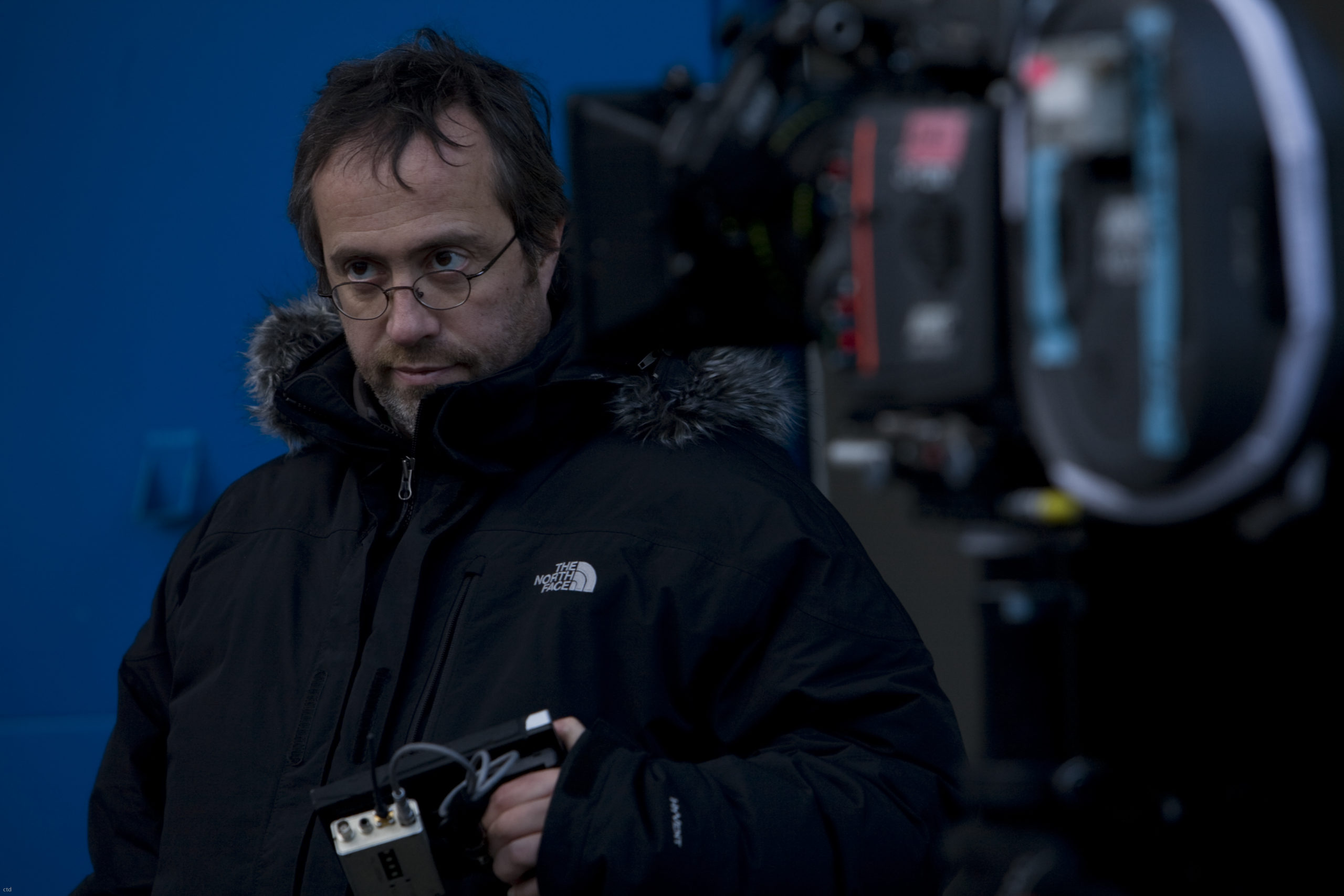
God exists and he lives in Brussels. That is the premise of Jaco Van Dormael’s new internationally acclaimed film The Brand New Testament (Le Tout Nouveau Testament). We spoke to the award-winning director to tell us more about the story, how it was developed, and what it is that fascinates audiences worldwide.
Released in the United Kingdom later this month, The Brand New Testament is a surrealistic, black comedy about a young girl wanting to change the world. This girl, the ten-year-old Ea, is God’s daughter. She lives in a tiny apartment in Belgium’s capital, together with her sadistic father and sweet-natured mother. Sick of her life and of God’s intentionally cruel treatment of humanity, Ea sets off on a quest to overwrite her father’s rules by finding six new apostles and thereby creating a brand new testament.
The film, spoken in French, has picked up a great deal of attention around the world, including a Golden Globe nomination for Best Foreign Language Film. It was Belgium’s entry to the Oscars and although it missed out on a proper nomination, it was included on the December shortlist with just eight other films. It also won four prizes at the Magritte Awards, Belgium’s most important film awards, including Best Film.
We asked Van Dormael why he thinks the story, which is so firmly set in Brussels, appeals to so many people. “I never know why a film works,” he begins. “I make films like dropping a message in a bottle, it is always a miracle when somebody finds it, and it is always a miracle when the theatres are crowded. When they are not, I don’t understand why, and when they are I don’t understand why but I am glad.”
A rebellious perspective
The main character in the film is Ea, Jesus’ sister, a role that is brilliantly played by Pili Groyne. Van Dormael says the idea of God having family really kick-started the storyline of the film. “What if he has a daughter, and she is a rebel and she is ten years old? Then the story started of course, because she hates her father like every teenager.”
During the film, God, played by Benoît Poelvoorde, gets more and more upset with Ea’s actions. Following her around, he comes to experience what life is like for the people he has been tormenting for ages, causing him to get even more outraged. Van Dormael explains why he decided to portray God as a bitter, sadistic man: “Hitchcock says, to have a good film, you need a good bad guy, a very strong bad guy. To make his daughter a rebel, he needed to really be a bastard. And it was not difficult to find, in the Bible, God is described as ‘jealous’. He destroys cities, cities who don’t obey, he destroys them. He asked a father to kill his son, that is not so kind!”
The inherent innocence and inquisitive nature of children is what Van Dormael used to push the story forward. And is it not just Ea who portrays these characteristics. “In this film every character still has a kid inside, we see the kid that is inside every adult in a short moment. We see the childhood of every character and that gives the feeling that these grownups are just kids in grownups’ bodies. Nothing changed really,” he says. “What I like in characters that are kids is that they are rebels, even if they don’t know, they are rebels, because they ask why, why, why? They have another interpretation of what is reality and how it functions, sometimes more surreal, and sometimes funnier.”
Ea is joined by six inhabitants of Brussels on her quest. These are all people that are unhappy with their own lives, but they feel like they are unable to change this. With Ea’s help, they get their lives back on track, albeit in completely unexpected ways. Van Dormael says: “They are six magnificent losers. They are six people who think that their life is behind then and that love will not appear anymore. And you know, there is a beautiful sentence by a French writer ‘if happiness is a house, the biggest room is the waiting room’. So they spend their whole lives in the waiting room, waiting for happiness.”
Shining the light on the women
For Van Dormael this was the first collaboration with scriptwriter Thomas Gunzig. “I think it was because we were two that it became a comedy. We tried to make each other laugh and that is much easier when you are two,” he says. However, the film goes through a range of genres, touching on many different emotions as the story develops but always interjected with funny, light-hearted scenes. “It alternates between comic, tragic and poetic,” he says, “there are a lot of different ways to approach the film, with the heart, with the brain or with the skin; laughing or crying. ”Some of the ideas of the storyline actually came from their own backgrounds, and the questions they had about their religious upbringing. “I have a Catholic education, Thomas has a Jewish education and both when we were kids, we were surprised that no women were saying anything in the books.”
Van Dormael was keen to give women a platform in the film. This is both in the way the story is composed, but is also reflected by the audience response, something that delighted Van Dormael. “It is a space for women,” he says. “I had the great feeling that at the beginning of the film I heard a lot of male laughs, male voices laughing. As the film continued, I heard more and more female voices laughing. And that made me really feel good.”
Religion and the story
Van Dormael points out that while religion is a big theme in the film, it is not actually what the story is about. He explains: “It is more a film about the power and sort of male power that is based on fear and obedience; there are laws, and if you don’t obey, there will be punishment. And that exists in religion, family, society and politics. And what God’s daughter, Jesus’s sister, brings is that she says; there will be no law and there will be no punishment, and don’t be afraid.”
Naturally, a story about such deep-rooted concepts such as God, Jesus, the testament and other Christian concepts,might not be appreciated by everyone. However, there was very little criticism from religious groups. “I was surprised,the film is incredibly successful in Italy and in Poland,” he says. “I heard that some people were shocked in Australia. Some creationists, but this film is also creationist; God created Brussels.”
The everyday turned into something sacred
To give the film a reverent feeling, Van Dormael adopted different style elements to get this across. One of the things used multiple times in the film are intimate monologues with the main characters, where they tell their story to the audience while looking into the camera.
As the film progresses, it becomes increasingly surreal. All the laws of physics and rules of nature are thrown out of the window, as God loses his grip on the world. We asked Van Dormael what in-spired him to add this level of surrealism to the story.
“I live in a surreal country, so surrealism is very close to reality here. It is so crazy, people often say, to live in Belgium you have to be crazy otherwise you will be nuts. It is a country I like, but also because there is no mainstream, nobody agree with anybody and there is no fight. And everything exists with the opposite on the other side and there is no problem, well sometimes there is a problem, but nothing is solved, never anything is solved,” he concludes.
Subscribe to Our Newsletter
Receive our monthly newsletter by email
